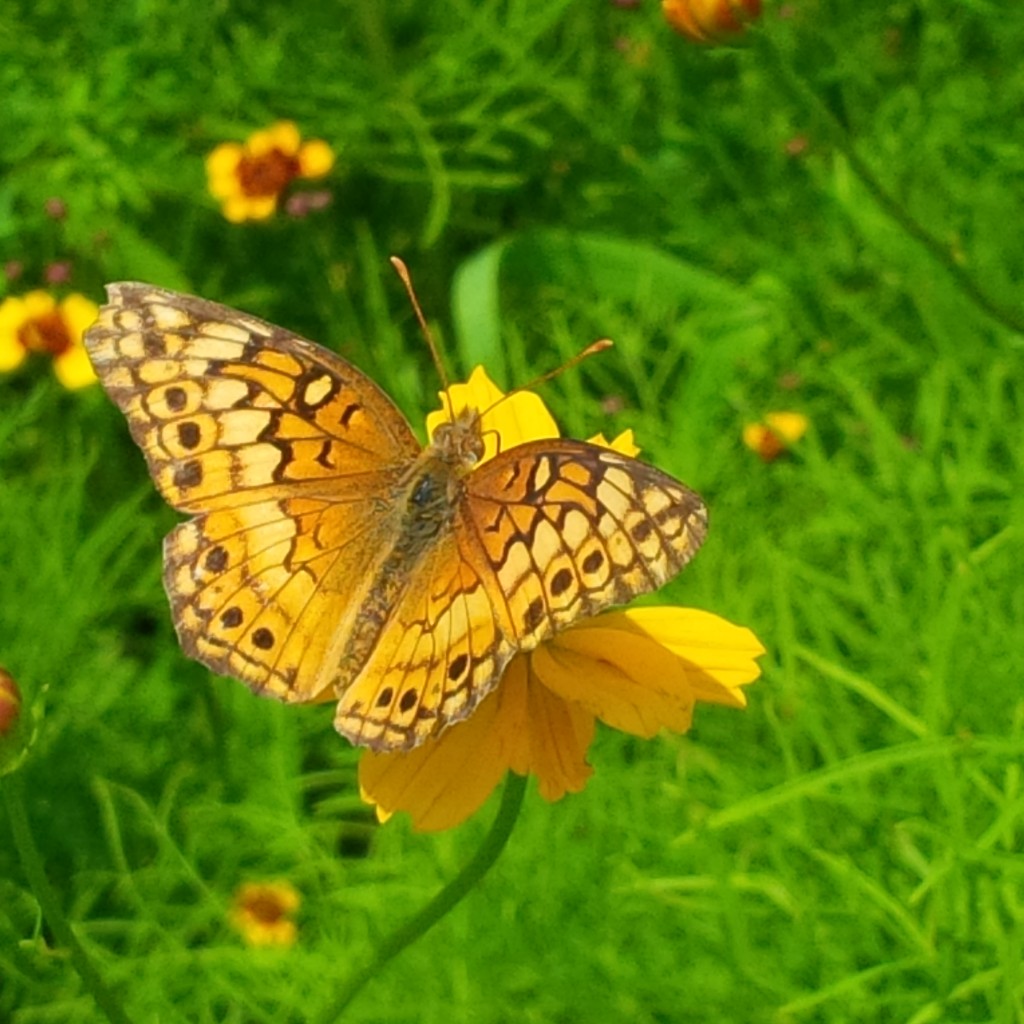Pollinators Management Information
go.ncsu.edu/readext?288247
en Español / em Português
El inglés es el idioma de control de esta página. En la medida en que haya algún conflicto entre la traducción al inglés y la traducción, el inglés prevalece.
Al hacer clic en el enlace de traducción se activa un servicio de traducción gratuito para convertir la página al español. Al igual que con cualquier traducción por Internet, la conversión no es sensible al contexto y puede que no traduzca el texto en su significado original. NC State Extension no garantiza la exactitud del texto traducido. Por favor, tenga en cuenta que algunas aplicaciones y/o servicios pueden no funcionar como se espera cuando se traducen.
Português
Inglês é o idioma de controle desta página. Na medida que haja algum conflito entre o texto original em Inglês e a tradução, o Inglês prevalece.
Ao clicar no link de tradução, um serviço gratuito de tradução será ativado para converter a página para o Português. Como em qualquer tradução pela internet, a conversão não é sensivel ao contexto e pode não ocorrer a tradução para o significado orginal. O serviço de Extensão da Carolina do Norte (NC State Extension) não garante a exatidão do texto traduzido. Por favor, observe que algumas funções ou serviços podem não funcionar como esperado após a tradução.
English
English is the controlling language of this page. To the extent there is any conflict between the English text and the translation, English controls.
Clicking on the translation link activates a free translation service to convert the page to Spanish. As with any Internet translation, the conversion is not context-sensitive and may not translate the text to its original meaning. NC State Extension does not guarantee the accuracy of the translated text. Please note that some applications and/or services may not function as expected when translated.
Collapse ▲ Pollinators are essential to the survival of many flowering plants, and to the production of over 85% of our food and fiber producing crops.
Pollinators are essential to the survival of many flowering plants, and to the production of over 85% of our food and fiber producing crops.
Insects are the most common and abundant pollinators. Today, mounting evidence indicates that pollinator populations are declining worldwide. While most everyone knows about honey bees, there are many other important groups of insect pollinators that must be protected as well.
Although much of the information below targets honey bee protection, the principles and stewardship practices described are applicable to all insect pollinators.
Pollinator Protection and Conservation (General)
- 10 Ways to Protect Bees from Pesticides
- Protecting NC Pollinators – NC Department of Agriculture & Consumer Services
- Preventing or Mitigating Potential Negative Impacts of Pesticides on Pollinators Using Integrated Pest Management and Other Conservation Practices
USDA Agronomy Technical Note No. 9, Feb. 2014 - Pollinators and Pesticide Stewardship – Coalition for Urban/Rural Environmental Stewardship, Syngenta, and Bayer CropScience.
- North American Pollinator Protection Campaign
- Backyard Conservation – not pollinator specific but still a great resource for how you can implement conservation practices that will improve pollinator and wildlife habitat in your backyard.
- Plant a Butterfly Garden – Read about how to attract butterflies and day flying moths to your garden by growing their favorite nectar-producing plants.
- Managing Alternative Pollinators – A handbook for beekeepers, growers, and conservationists (free book)
- Gardening for the Bees – Using plants in your garden that support your butterflies and native bees
- Colony Collapse Disorder Action Plan – USDA/EPA publication on Colony Collapse Disorder (CCD)
- Pollinator Protection Strategic Plan – EPA vision and goals to promote and enhance pollinator protection in future years.
IPM Elements (Honey Bees)
- IPM Elements for Honey Bees in the Mid-Atlantic States
A list of IPM practices that can be used in honey bee pest management. - What IPM means for Today’s Beekeepers
Pest Management Strategic Plan (Honey Bees)
- Pest Management Strategic Plan for Honey Bees in the Mid-Atlantic States
Summary from a 2008 workshop that outlines the research, educational, and regulatory priorities for managing honey bee pests including insects, mites, vertebrates and diseases.
Production (Honey Bees)
- Apiculture and Beekeeping – N.C. Cooperative Extension
- Extension Beekeeping Notes – Extension articles authored by the NC State Apiculture Program. Topics covered are Africanized honey bees, honey bee dance language, types of honey bees, diseases of honey bees, how to become a bee keeper and more.
- Pollinator Protection – Pesticide Environmental Stewardship, CIPM
Principles geared towards the protection of honeybees and other pollinators. - North Carolina Agricultural Chemicals Manual – This manual has a table that lists pesticides and their relative toxicity to honey bees, plus recommendations to reduce pesticide poisoning to honey bees.
- Disease Management and Guidelines for the Honey Bee – The following is an outline of recommendations for detecting and treating colonies for economically important parasites and pathogens of honey bees so that beekeepers may achieve this goal, and do so in a sustainable way for the long-term health of their colonies.
Websites – For Pollinators in general
- Apiary Services – NC Department of Agriculture and Consumer Services
- Bee Informed – USDA, National Institute of Food and Agriculture
A partnership between the USDA and NIFA working to supply data on the best beekeeping practices to produce healthier honey bees. - Cooperative Standards – Mississippi State University Extension Services Cooperative standards for the coexistence of row crop farmers and beekeepers adopted in Mississippi.
- North American Pollinator Protection Campaign – Encourage the health of resident and migratory pollinating animals in North America
- Insects and Pollinators – USDA Natural Resources Service
- The Xerces Society – Pollinator conservation program


